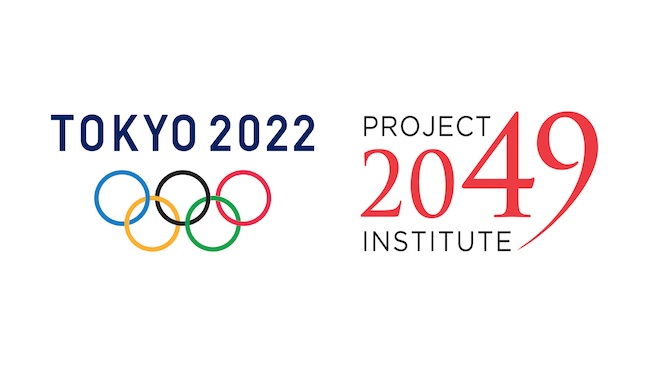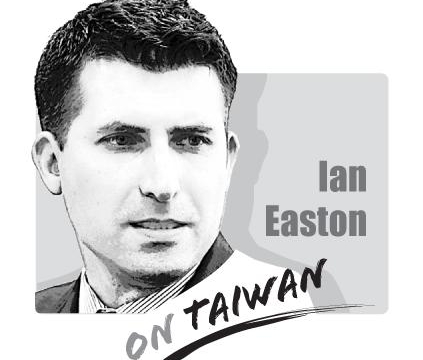
Coordinated Competition in the Indo-Pacific
July 1, 2021
The Threat of China Invading Taiwan is Growing Every Day. What the U.S. Can Do to Stop It.
July 9, 2021By: Randall G. Schriver and Surya Narayanan |Â
On July 8, Japan declared its fourth state of emergency in response to the worsening COVID-19 pandemic, throwing the already-delayed Summer Olympics into question yet again. This development only underscores the need to determine a sound approach for the upcoming Summer and Winter Olympics. On one hand, Japan’s delayed 2020 Olympics are rapidly approaching amidst a low vaccination rate, growing domestic discontent, and new state of emergency measures, raising concerns about the viability of hosting a “safe and secure†Summer Olympics, despite the government’s valiant efforts to do so. On the other hand, China’s (People’s Republic of China, PRC) 2022 Winter Games is the subject of increased scrutiny given the country’s genocide of Uyghurs and other ethnic minorities in Xinjiang. While the International Olympic Committee (IOC) President Thomas Boch has routinely expressed the desire to remain “politically neutral,†domestic and international voices have criticized the IOC for moving forward with China as the host for the Winter Games, further calling on the organization and the international community to take a stand. Due to these concerns regarding the Olympics in both Japan and China, the IOC faces a difficult challenge. However, a complex problem calls for an elegant solution: allow Japan to dually hold both the Summer and Winter Games in the year 2022.
Japan’s Reputable Host Experience
As a three-time Olympic host, Japan is more than capable of serving as a Winter and Summer Olympics dual host. By leveraging the nation’s experience hosting the Games, Japan can effectively plan and implement effective measures for a successful event. Japan can ostensibly renovate, expand, and rebuild venues from previous Olympic Games to meet the demands of increased attendance and spectators. While climate presents a challenge, Japan could hold the Summer and Winter Olympic events in warmer and cooler regions throughout the country, possibly even partnering with nearby nations in a multi-venue Games. Given Japan’s experience, infrastructure, and reputation, the nation has the capacity to host simultaneous Games.
Historical Precedents and IOC Reforms
A dual Summer and Winter Games would not be an unprecedented move. From 1924 to 1992, the IOC held both events during the same year, only later shifting the Summer and Winter Games to the first and third year within the four-year “Olympiad†period. It is true that hosting dual Games in 2022 would prove a challenge for athletes, spectators, and the government. However, with the support from the IOC, Japan could shorten this timeline to two months, emulating the historical model to execute a dually-hosted Games.
The IOC’s recent reforms to the Olympic selection process provide the necessary frameworks for such a move. In June 2019, the IOC Executive Board announced a new approach to the election of hosts, emphasizing flexibility and contextualization, sustainability and legacy, and partnership and cost-efficiency. This was introduced in tandem with the modification to the IOC’s Olympic Charter, notably allowing the term “host†to refer to “multiple cities, regions, and/or countries,” with approval from the Executive Board and removing the clause requiring Olympic host elections to occur seven years prior to the event. The IOC should apply these structural reforms in this unique context to reflect the dire situation at hand.
Japan’s Public Discontent with Hosting the Summer 2021 Olympics
While the Japanese government looks forward to hosting the Summer 2021 Olympic Games, the general public in Japan views these attempts with growing concern over public safety issues. Hosting a major international event during a global pandemic is dangerous and impractical. As of July 6, Japan’s population is only 13.8% fully vaccinated. While Japan’s vaccine distribution will certainly increase as the Olympics approach, there is no feasible way to have enough of the population vaccinated in time for the Games (and this does not consider the participants from countries which have even lower vaccination rates). While Japan has already barred spectators from attending the events in light of the fourth state of emergency, the amount of coordinated international travel and potential exposure is too great to risk the further spread of COVID-19.
In May, a survey in a major Japanese newspaper showed that 83% of Japanese voters said Japan should either postpone or cancel the 2021 Olympics, with only 14% responding that the Olympics should continue as planned. In addition, a major group of medical practitioners in Tokyo called for the cancellation of the Olympics, claiming that hospitals are full and doctors are already overwhelmed with the ongoing wave of COVID-19 infections. The most prominent voices that continue to push for going forward with the Olympics are limited to the Japanese government and the IOC.
Naturally, the Japanese government and the IOC are largely concerned with the economic impact of postponing the Olympics again, or opting for a full cancellation. While investors have already spent roughly $11 billion on preparing for the event and taking additional measures in the interests of public health, responding to a COVID-19 outbreak would be more economically devastating than the cancellation of the 2021 Olympics. According to a report published by the Nomura Research Institute, Japan’s economic losses after its first three emergency declarations totaled well over $120 billion as businesses coped with government-imposed restrictions. Further, despite estimates that cancelling the Olympic Games would result in nearly $17 billion in losses, the costs of handling the ongoing fourth state of emergency, attempting to hold a “safe and secure†Olympic Games despite all restrictions—and responding to yet another COVID-19 outbreak—would be much more economically significant. The smartest choice for Japan’s public health, public opinion, and economy would be to postpone the Summer Olympics for another year.
Bipartisan Opposition in Congress
The United States Congress has made clear its bipartisan opposition to Beijing hosting the 2022 Winter Olympics. Congress’s opposition accords with the Trump administration’s designation of human rights abuses in Xinjiang as genocide, a posture maintained by the current Biden administration. Most recently, on June 8, the House Committee of Foreign Affairs called on the IOC to consider the mass detention of Uyghurs and violation of minorities’ rights prior to the Winter Games. Months earlier, on February 24, Republican Representative Michael Waltz sponsored a similar bill through the House Committee on Foreign Affairs and the Oversight and Reform Committee, urging the IOC to rebid the games, calling on the United States Olympic & Paralympic Committee (USOPC) to refrain from participating in the Beijing Games, and requesting the United States government to lead an international boycott if such changes are not made. As the Biden administration continues to respond to China’s genocide in Xinjiang on a national level, bipartisan opposition to the Beijing Olympics will likely grow louder in volume.
In addition, several high-level U.S. government officials have called for a “diplomatic boycott†if the IOC refuses to rebid the Olympic games. In a New York Times op-ed, Senator Mitt Romney called for an “economic and diplomatic boycott†of the Beijing Olympics, stripping away China’s ability to profit—either financially or reputationally—from American spectators, corporations, diplomats, or political leaders while supporting American athletes. In addition, Speaker Nancy Pelosi made similar statements in support of a “diplomatic boycott†in a joint hearing with the Congressional-Executive Commission on China (CECC) and the Tom Lantos Human Rights Commission, stating that the United States should not “honor the Chinese government by having [government leadership] go to China to show their support for [U.S.] athletes.†Additionally, former Secretary of State Mike Pompeo asked rhetorically in a Fox News interview, “Who would want to attend the Genocide Olympics?,†carrying on the sentiment that human rights issues are of the utmost importance when it comes to the Games. Despite the varied tone and tenor of these statements, the consensus is clear: Beijing should not host the 2022 Winter Olympics.
Ineffectiveness and Harm of Boycotts
In light of the ongoing genocide in Xinjiang, numerous parties have called for a boycott of the 2022 Winter Olympic Games in Beijing. However, history suggests a U.S. boycott of the Beijing Games is far from an effective solution. For example, to protest the Soviet invasion of Afghanistan and consequently pressure withdrawal from the region, the United States boycotted Moscow’s 1980 Summer Olympics, conversely resulting in the USSR’s retaliatory boycott of Los Angeles’ 1984 Summer Olympics. Furthermore, the U.S. boycott in 1980 had no apparent impact on the occupation in Afghanistan. If the United States were to boycott the 2022 Winter Olympics in Beijing, similar events could unfold. The PRC and its partner countries may choose to boycott the upcoming 2028 Summer Olympic Games, which are currently scheduled to be held in Los Angeles. Given past precedents, a boycott could ultimately prove ineffective in prompting Beijing to change its course of action in Xinjiang, and it would result in a detriment to the continued tradition of the Games in future seasons.
Furthermore, boycotting the Olympics would eliminate an opportunity for high-profile athletes to comment on global issues. The CEO of the U.S. Olympics and Paralympics Committee, Sarah Hirshland, eloquently summarized the issue in an open letter to Congress in May, claiming that the Olympics are an opportunity to showcase U.S. values and principles on a global stage. Past Olympic games have been perfect examples of this, including Jesse Owens’s participation in the 1936 Olympics in Nazi Germany and the participation of several openly gay athletes in the 2014 Olympics in Sochi following the Kremlin’s severe restriction on LGBTQIA+ rights. By participating in the Olympics, U.S. athletes keep the opportunity to compete in one of the most high-profile events of their lives, leveraging their participation in the Games as a platform to engage with important sociocultural issues. The best alternative to a boycott of the 2022 Olympics is to change the venue to a more ideal location.
While changing the venue of the 2022 Winter Olympics away from Beijing may create a dangerous precedent of sitting out events designed for international cooperation and sportsmanship over political differences, it would be a price worth paying to make a statement against an ongoing genocide in the most populous country on the planet. In addition, a change in venue would not be undertaken indiscriminately: it would be a change in venue to a three-time successful Olympic host that underwent its own period of authoritarianism, and has since modernized and democratized to become the great nation that is Japan today. Genocide is not a matter to be taken lightly, and a government found to be engaging in such actions should not be given the honor of hosting the Olympic Games.
Conclusion
By opting for a dual Summer/Winter Games in 2022, Japan can host the Olympics in an environment more conducive to protecting public health, and the international community will not have to handle the consequences of staying silent in the face of genocide. Upholding the principles of the Olympic Games, as well as abiding by American values, should take precedence over the potential economic and diplomatic consequences of both postponing the 2021 Olympics and changing the venue for the 2022 Olympics. Going forward, the International Olympic Committee should also consider altering the process by which host cities are chosen, taking into consideration the values of host countries in conjunction with the stated values of the Olympics (excellence, friendship, respect, etc.). While questions on how to proceed with the next two Olympic games continue to concern the international community, allowing Japan to dually host the Summer and Winter Games in the year 2022 may serve as an elegant solution to this important and complex issue.




